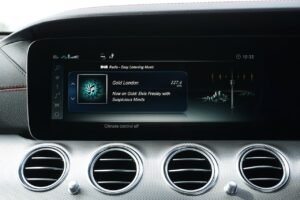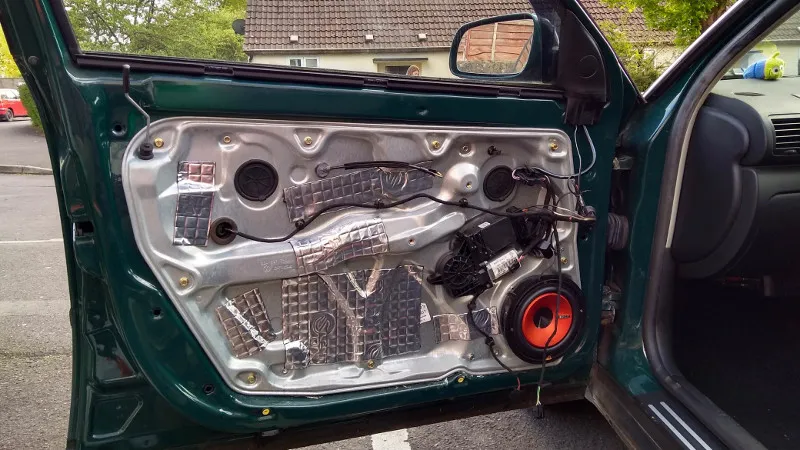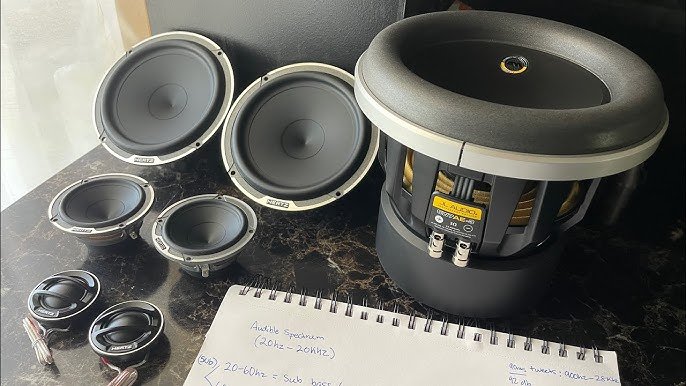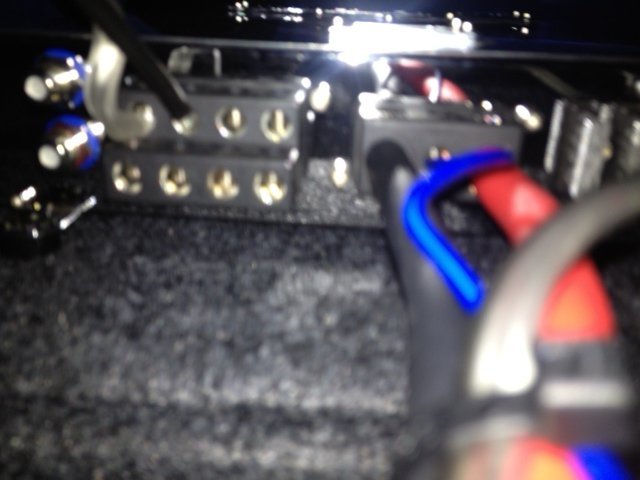Ever wish your car was a bit quieter? If yes, you’re at the right place. In the next five minutes, we’ll touch upon every key aspect of soundproofing your car and some handy tips to give your car the quiet and hush it deserves.
Driving a car can be a real struggle if distractions keep popping up.
Whether it’s the hum of the engine, the roar of the road, or just the wind swishing up, every bit of sound can make you feel out-of-focus and annoyed when you’re at the steering wheel.
The good news, however, is you can soundproof your car to make your rides smooth and peaceful. And, the whole process isn’t complicated or expensive either. If you know how and where to invest, you can successfully sound-deaden your car without spending a fortune.
Does that ring a bell for you? Well, if it does, our guide on how to soundproof your car is something you’d enjoy. Stay with us as we uncover the most simple, straightforward car soundproofing tips to transform your rides into more seamless and relaxing.
Why Should You Soundproof Your Car?
If you think soundproofing is just for luxury cars, you’re wrong. Truth is, soundproofing is for everyone who owns a ride. It comes to the fore as one of the best ways to ensure a driving ambiance that’s pleasant and relaxing.
Whether you want to tune into your favorite songs, attend meetings on the go, chat with passengers, or just want to spend some time with yourself, soundproofing makes it all work. Plus, it makes long drives less exhaustive and draining. As a fringe benefit, car soundproofing keeps your ride warmer in the winter and cooler in the summer.
Soundproofing can bring in a world of difference to your car if you opt for it. It has plenty of benefits that transform your car into something where you’d love to laze around, let alone drive and do your everyday chores.
How Can You Soundproof Your Car?
Soundproofing your car can be a simple project to a complex task depending on the area you’re focusing on. Here’s a simple, step-by-step process:
- Identify the noise source: First and foremost, figure out the noise source as it can be external or internal. It’s a crucial step before selecting the approach, deciding the type of soundproofing materials, and ensuring the effectiveness.
- Prepare the area: Soundproofing involves coverage and requires clear access to the car’s surface. So, it’s necessary to remove what may obstruct the view. The interiors of the car must be carefully stripped with wires along the way. Remember, it isn’t always necessary to remove everything, but access to the sheet material is important. The process makes it easy to apply the material to the specific area of the vehicle.
- Clean the sheet material: Before you apply any soundproofing material, the exposed sheet has to be cleaned properly. For effective cleaning, use denatured or isopropyl alcohol as it speeds up the drying time. Note that a clean surface ensures adhesive bonding for the soundproofing materials.
- Applying the soundproofing material: Applying soundproofing material to the sheet metal is crucial. The coverage has to be comprehensive as vibrations or sound may penetrate through the small gaps. If you’ve chosen mats, peel off the backing and stick them directly to the surface. For foam or spray, follow the manufacturer’s instructions. To guarantee that no spaces remain unfilled, use weatherstripping or sealant to install a more comprehensive barrier against sound.
- Reassemble and test: After completing the installation of the soundproofing material, make sure you reassemble the removed parts and test the setup. Pull the vehicle out, take a drive, and ensure there’s no sound finding its way in.
These are the simple steps to car soundproofing. Now, let’s walk you through the best soundproofing materials that you can blindly invest in.
Best Soundproofing Materials
Soundproofing materials come in all sorts of variety. We’ve covered the best ones out there in the table below to narrow down your choices and help you pick the best.
| Material | Description | Benefits | Use |
| Sound-deadening mats | Made from asphalt or butyl rubber. | Absorbs and restricts the passage of sound. | Stick to surfaces like floors and doors. |
| Acoustic mats | Made using sound-deadening and foam layers. | Instrumental in absorption and insulation. | Used in floor and door panels. |
| Foam panels | Acoustic foam to line the car interiors. | Soaks sound in and eliminates echo. | Installation in doors, roof, and floor areas. |
| Mass loaded vinyl (MLV) | Heavy, flexible material that adds mass to surfaces. | Blocks sound. | Simplifies soundproofing on hard-to-reach surfaces. |
| Spray-on soundproofing | The spray-on liquid is used on surfaces. | Foam pieces are placed across various areas. | Inner panels and inaccessible areas of a car. |
| Waterstripping | Rubber or foam strips to plug gaps and weak ends. | Prevents noise. | Floor and door panels. |
| Foam inserts | Foam pieces placed across various areas. | Reduced noise and reproduction of noise. | Door panels and under carpets. |
| Underlayments | Specialized materials for soundproofing under carpets and car floor areas. | Eliminates noise and vibrations. | Under carpets and floor coverings. |
Common Automotive Soundproofing Problems and Solutions
It’s necessary to ensure workability and maintain the standards of car soundproofing. Here are a few issues many face while soundproofing their vehicles as well as some troubleshooting tips that helped them.
- Noise from every bump
The noise from rough terrain or driving over potholes can disrupt your drive. If you often travel on rough roads, it is necessary to consider specialized tires.
- Road noise from the roof or floor
Noise gravel sounds emerging from the tires are unpleasant. Manufacturers use sound-dampening materials to deal with this issue. You may apply soundproof mats with adhesive backing to the floors and roof. Before insulation, clean the surface properly to ensure that the mat adheres well significantly reducing road noise.
- Noise pollution from the doors
Soundproofing your car doors is an effective strategy to trim down the incoming noise. Incorporating insulation into car door panels can form a substantial barrier and significantly reduce the noise entering the cabin.
How Much Does Soundproofing a Car Cost?
The cost depends upon the size of your car, the materials used, and whether you do it yourself or avail the services of a professional. If you go with a professional the cost is likely to shoot up.
With some effort and the use of the right soundproofing materials, you can turn a noisy car into a peaceful heaven on wheels. It enhances your driving comfort and the overall quality of your car environment. Remember to choose materials suitable for your climate and focus on the areas that disturb you the most. With careful execution and planning you are bound to achieve a noticeable reduction in car noise making it an enjoyable experience.
H2:Areas to Soundproof Your Car for Optimal Noise Reduction
Soundproofing your car is a strategic procedure where you focus on specific areas resulting in a quality ride. Below are a few areas where you can concentrate your efforts to soundproof your car effectively.
- Engine
The engine is an important source of noise and it is necessary to address it at any cost. It is better if you apply sound-deadening material under the hood which blocks noise from entering the cabin. If the noise is louder you need to consult a mechanic.
- Trunk
Noise from the trunk in cars with powerful sound systems can be frustrating. An option is to line the trunk’s bottom and sides with sound-dampening material to reduce the impact of sound waves. You have to work on soundproofing the trunk which you can do by applying a thick sheet on the surface.
- Roof
The roof is formulated from a thin sheet of material that does not have any sound barrier. It serves as a contractor for sound vibration propagation and is often under-protected against noise. For this, you can paste a sheet of hard plastic on the car roof and the sheet will absorb all the sound variations.
- Doors
Doors are one of the major culprits for allowing external noise into the car due to their thin construction. The worst part is that the design of some doors is bound to transmit sound. To deal with this issue you can plan to insulate the doors with hard plastic or foamy material.
FAQs
- Does climate have a role to play in car Soundproofing?
Yes, high humidity and extreme temperatures can degrade soundproofing materials over time. High humidity can impact the adhesiveness of these materials causing them to degrade faster. It can also lead to mildew and mold problems. Hence it is essential to choose materials that are resistant to your specific climatic conditions.
- What are the common mistakes to avoid when soundproofing your car?
Below are some of the common mistakes to avoid when soundproofing your car
- Using the wrong materials for the application
- Not properly cleaning the surface before application
- Leaving air gaps behind the soundproofing material
- Not carefully resembling panels which may lead to rattles.
- Does sound deadening a car work?
If you use high quality sound deadening products, the answer is 100 % yes. Always remember: the better the material, the better is the sound-deadening around your car. Hence, the rule of thumb is to choose wisely.
- Crafting Captivating Headlines: Your awesome post title goes here

- The Art of Drawing Readers In: Your attractive post title goes here

- Mastering the First Impression: Your intriguing post title goes here

- How To Fix A Blown Car Speaker | 7 Easy Steps [2024]

- What Does SVC Mean In-Car Audio | Know More

- How To Fix A Car Speaker That Crackles | Steps To Follow



